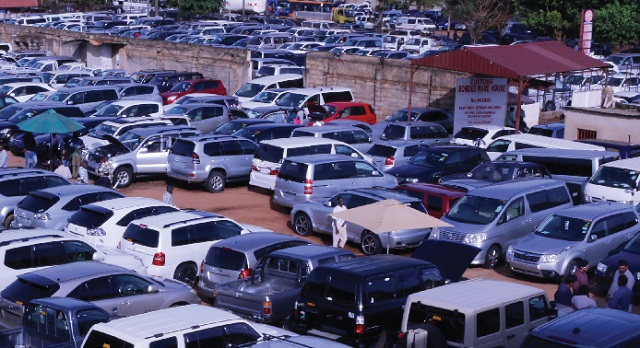
Kampala, Uganda | THE INDEPENDENT | Second-hand car dealers are pushing for the halt of implementation of the East African single customs territory regulations on the importation of used cars with 9 years or above since the date of manufacturing.
As per the URA notice, effective 1st July 2022, there will be no warehousing for imported used cars beyond 9 years since the time of manufacturing, and for the importation of such, taxes must be paid at the point of entry in the region before entering Uganda.
Marvin Ayebare, the publicity secretary of the Associated Motor Dealers says this regulation will kick them out of business, because it has increased their operating costs, and this will also lead to car prices going beyond reasonable affordability.
Deus Kamugisha, another dealer says that this will make them uncompetitive because all cars have to increase in prices since the high cost incurred to import must be recovered.
Many Ugandans will not get a chance to drive because the mode government wants us to import is very expensive and ordinary Ugandans can’t afford yet these are our main market,” he explains.
Kamugisha also says that most dealers without enough cash to pay taxes at points of entry, will be forced to quit business creating unemployment in the process.
Issa Ssekitto, the KACITA spokesperson said that the implementation of this regulation will lead to the loss of jobs as many Ugandan agents cannot operate from the respective countries of origin.
He adds that the East African Customs Management Act provides for 270 days for one to have cleared taxes on such imports, which Ssekitto urges URA to use instead of implementing the new regulation.
Thaddeus Musoke Nagenda, the KACITA chairperson says they are seeking more engagements with the concerned authorities to harmonize the situation, he adds that they are also analyzing the situation with their legal team on the way forward.
However, Ibrahim Bbosa, Assistant Commissioner Public and Corporate Affairs Uganda Revenue Authority mentioned that the East African customs act section 64k, allows the commissioner to prescribe what goods are cleared where, and that the tax body move is within the law.
Bbosa adds that in URA’s efforts to transform their work and revenue correction, it was found that over 5 billion shillings of tax are laying in the bonds and above all, some of these cars are never sold, hence the government incurring other costs in auctioning, this is what we want to avoid by implementing this regulation.
He continues that in cases of such changes, there have always been inconveniences because some people might be interested in what’s good for them as individuals, but we have engaged them and we are continuing to just to know how best this can be executed without disruption.
“We are on the right path, it is not that we are increasing taxes, we are only saying that before you could bring and keep the old car in the bond and we wait for 9 months before getting taxes from you, this time we need these taxes before the process since they will even be paid by the customer at the end of the day,” Bbosa explains.
*****
URN
 The Independent Uganda: You get the Truth we Pay the Price
The Independent Uganda: You get the Truth we Pay the Price





